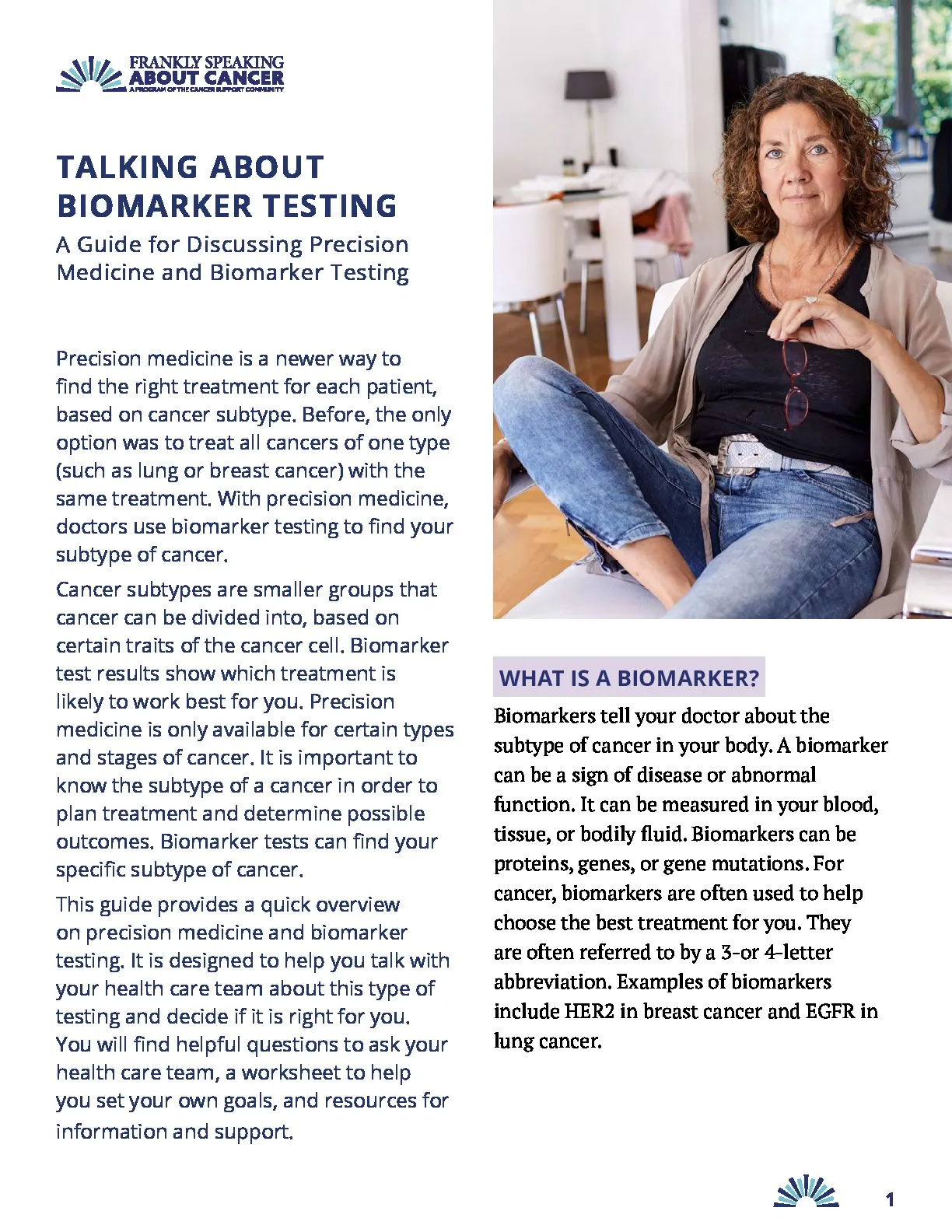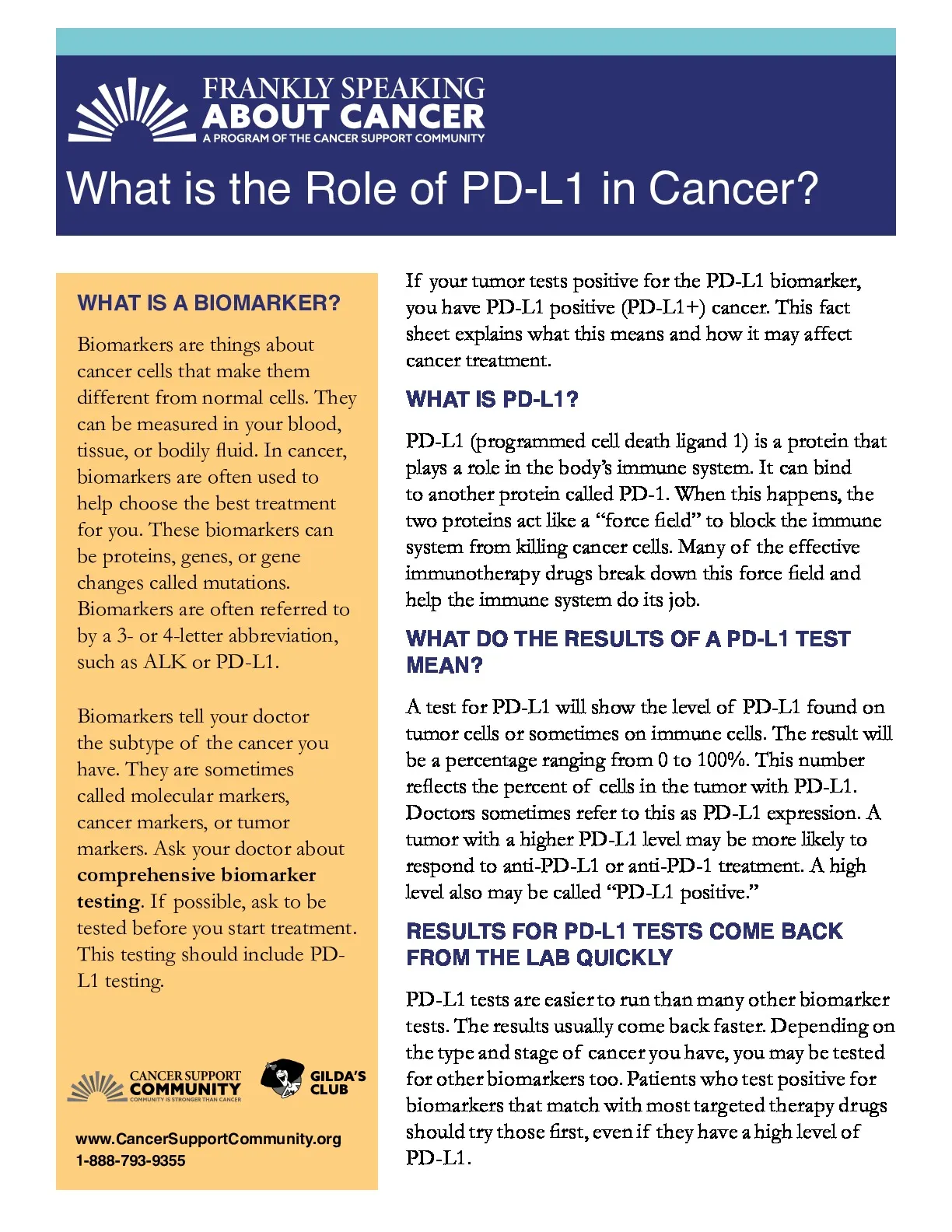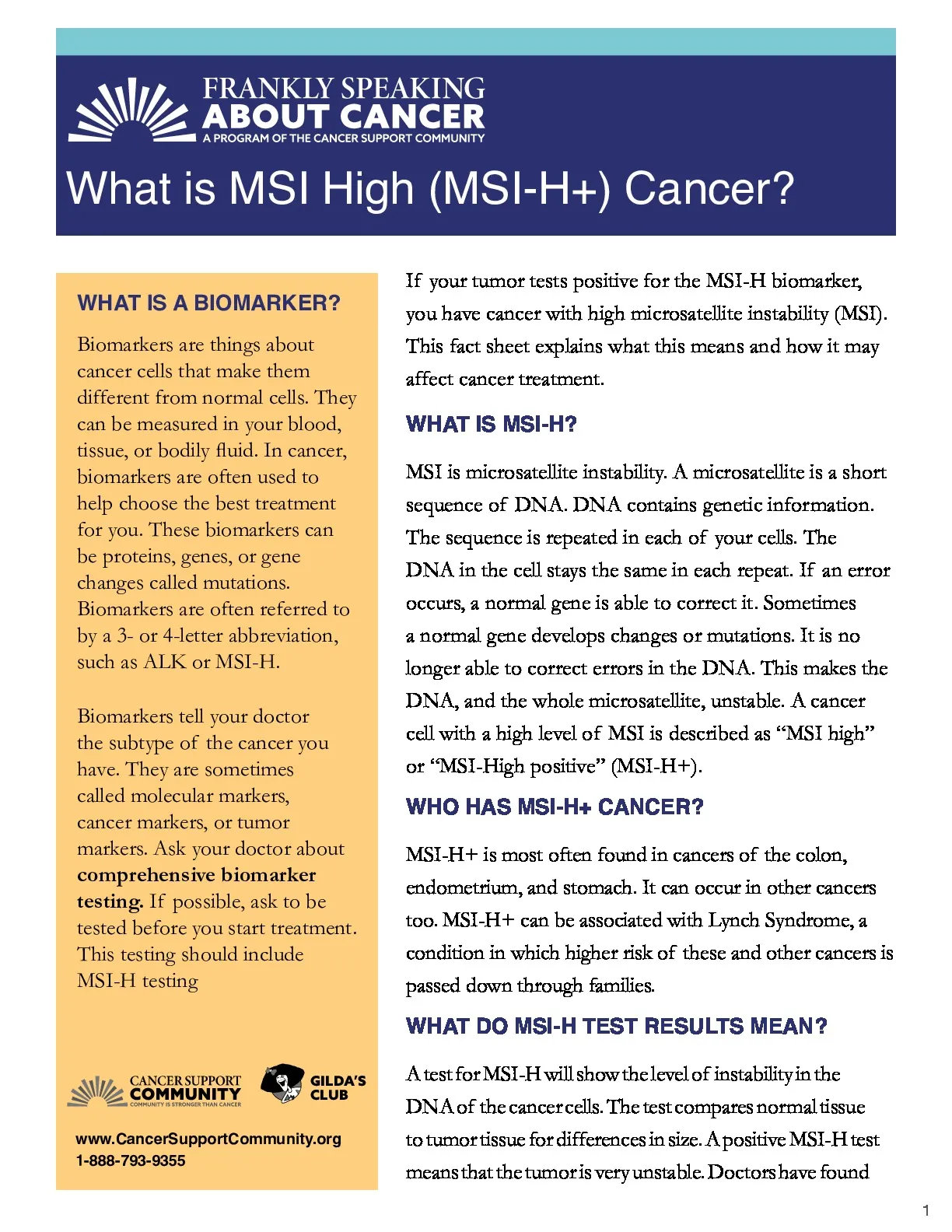Biomarker Testing for Cancer
A complete cancer diagnosis is more than just a positive test for cancer. Doctors use different tests and scans to learn as much as possible about each cancer they treat. Every cancer is unique just as every person is unique. The treatment that is most likely to work for you is the one that is tailored just for you. This means that it is tailored to the precise subtype of cancer you have. Biomarker testing is one kind of test that may help determine the best treatment for you.
If you are hearing about biomarkers for the first time, you may wonder what to do next. Here is some information and advice to help you get started.

What Are Biomarkers?
Biomarkers are things about cancer cells that make them different from normal cells. They can be measured in your blood, tissue, or bodily fluid. In cancer, biomarkers are often used to help choose the best treatment for you. These biomarkers can be proteins, genes, or gene changes called mutations. Biomarkers are often referred to by a 3- or 4-letter abbreviation. Examples of biomarkers are HER2 in breast cancer or EGFR in lung cancer. Biomarkers tell your doctor the subtype of the cancer you have.

Why Are Biomarkers Important?
Biomarkers help determine your cancer subtype and your best treatment options. Some cancer drugs are only effective for people with certain cancer subtypes. Biomarker testing can help ensure that you get the treatment that is most likely to work for you.
What Is Biomarker Testing?
Biomarker testing helps your cancer care team match targeted therapy or immunotherapy drugs to the specific subtype of cancer you have. Your doctor will collect a sample of your blood, bodily fluid, or tumor tissue. A tissue sample may be taken during a surgery or biopsy. The sample is then sent to a lab for testing. When your test results come back, they can be used to help guide your treatment options.
Biomarker testing is also called molecular testing, tumor profiling, somatic testing, or genomic testing of cancer cells. When it is called for, biomarker testing can help identify the best treatment. It can also determine if you are eligible for clinical trials.
There are many useful biomarkers. Not every test covers them all. Some doctors and hospitals still make treatment decisions without doing the testing. This can result in incorrect treatment choices.
Precision Medicine: Biomarker Testing
Biomarker testing provides more information about cancer beyond the type and stage. Watch this 5-minute guide from our Precision Medicine video series to learn more about biomarker testing and how it is being used to diagnose and treat cancer…
Should I Get Tested for Biomarkers?
For many cancer types and stages, biomarker testing is the standard care. Some doctors will test for biomarkers without you having to ask. For other cancers, biomarker testing is only done by doctors at university hospitals and major cancer centers. Sometimes it is only done when you ask for it. Even when biomarker testing is not offered, it still may be helpful. It is always a good idea to ask your health care provider about comprehensive biomarker testing. If possible, ask before you start treatment.
Watch & Learn About Biomarkers
What is Biomarker Testing?
Ruby, your virtual community navigator, will help explain what you need to know about biomarker testing and how it can impact cancer treatment.
What Else Should I Know About Biomarker Testing?
- If you have cancer, talk to your doctor about getting “comprehensive biomarker testing” before starting treatment. This is especially important if you have advanced cancer. It also might be helpful for locally advanced or early-stage cancer. Locally advanced cancer has spread to nearby tissue or lymph nodes. Advanced cancer means that the cancer has spread to other organs. This is also called metastatic or stage 4.
- Different biomarkers play a role in different cancers. Ask your doctor or learn a little on your own about the biomarkers that matter for the kind of cancer you have. For example, if you have colon cancer, ask to be tested for a biomarker called MSI-H.
- The need for biomarker testing is not based on any risk factors. For example, if you have lung cancer, it does not matter if you smoked or didn't smoke.
- It can take a few weeks to get the results of biomarker tests. Patients who test positive for biomarkers often do not respond as well to other treatments. For this reason, it may be worth waiting for these test results before starting treatment.
Frankly Speaking About Cancer Library
LibraryWould you like a print copy of these educational materials?
We can mail our Frankly Speaking About Cancer pieces to you. Shipping is free for up to 20 pounds.
Learn More About Biomarkers
Biomarkers and Precision Medicine
Learn how biomarkers can be used in precision medicine to create the most effective treatment plan possible.
Lung Cancer Biomarker Tool
Take our 2-minute survey to learn which biomarkers matter for your lung cancer treatment.





